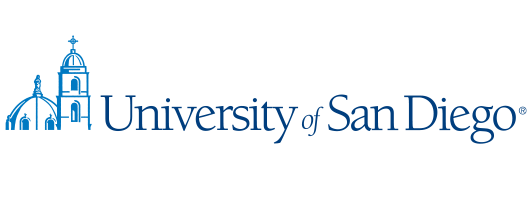
Matt Devost: Solving hard problems and pursuing your passions. [CEO]
Matt Devost: My name is Matt Devost and the CEO of OODA LLC, I was writing a lot of my own programs.
Matt Devost: I grew up in a very rural area. And so, you know, I didn't have exposure to some of the early BBS systems. And actually, with my first computer did not have a disk drive or any storage medium. So I would spend all my time programming, you know, kind of all of the available memory on that Commodore 64 with different applications and had written a menu application that would kind of let me jump between the different sections.
Matt Devost: And then I would cry every time we lost power, which was quite frequently because I had, you know, would lose everything that I had coded into the device the minute it was powered off.
Matt Devost: I was lucky. Again, I was in a very rural area. There are 19 people in my graduating class and there was nothing offered from a computer science perspective. But when I expressed interest, my high school math teacher actually would go in the summer to learn how to teach computer science and then would come back and teach me.
Matt Devost: And then the interest kind of adapted over time. When I got to college, I was focused on not only computer science, but also national security studies. I became very interested in how things work and taking them apart. And, you know, that was kind of my early entree into kind of true hacking and looking at other people's programs and other people's systems. And I happened to see this convergence between the two topics that I loved. And if you think back to the early 90s, really the combination of political science and computer science was all around statistics and analysis. And I saw this new career field, or at least I hoped, based on what I saw, was an increasing use of computer technology and critical things. So critical infrastructure, society, finance, et cetera. And then the inherent vulnerability of those systems, because I was capable of hacking them, the friends that I was meeting were capable of hacking them. And then if you combine that with my national security focus, I saw this as a new national security threat.
Matt Devost: So I started writing on that topic back in 1992 and attracted a tremendous amount of attention to myself because as one of the early people to kind of highlight the risks of what would become information warfare or cyber war. So I was viewed a little bit by some of the folks in the national security circles and intelligence community, as well as kind of the equivalent of a kid building an atomic weapon in his garage. I was coming to the same conclusions and researching the same things that they had identified. At the same time as this key national security risk that they were trying to keep under wraps for the most part.
Matt Devost: There was quite a bit of friction at the time, for example, in 1993, I graduated from undergrad and went straight into grad school and got a Masters or was pursuing a Masters in national security studies and political science. And the political science team at my graduate school basically told me that the topic of information warfare was not valid from a thesis perspective. So it would have been easy to give up at that point. But I was persistent and I had folks who were advocating for me and telling me, look at issues of command and control warfare or look at this, or you're kind of giving me pointers to kind of redirect my research. It also gave me some great career firsts. You know, I built a red team that that emulated the adversary during classified coalition military exercises. And during that red team was the first person to hack into systems on an aircraft carrier while it was at sea. We did that with a nuclear submarine. There were these very headline-invoking all of the work we're doing at the time wasn't covered in the press. But internally at the classified level within DOD, these were significant wake-up calls.
Matt Devost: My favorite part is solving hard problems. I like being in the room when we're confronting something that seems almost unconfrontable and working through the process. How do we adequately address that?
Matt Devost: So I really thrive on that kind of red teamer perspective. Give me something that you think is one of your most difficult things to achieve or most difficult realities that you face. And let's build some approaches for how you you are able to take advantage of it.
Matt Devost: If you have the interest and the passion, by all means, we have the need within the community. You know, we have a workforce that just doesn't have the numbers by way of the professionals in it. So I would encourage folks, if you have the interests get involved. You have to engage in self-learning. Certifications are great. It's great to get on the job experience, but I always like to look at the folks who built a basement lab or set up their own AWS cloud infrastructure and were hacking against that so I would encourage them to take advantage of the opportunities that exist for that self directed learning as well.
Matt Devost: For me, the real value is in the success of the people that I mentor. I taught at Georgetown for 14 consecutive years, so I'd cycled 600 students through there. And I take great pride in seeing how they are going out and solving some of these problems. So for me, I think the real legacy, you know, is a combination of the things that you accomplished in the way that you were able to drive the industry, but then also the footprint that you leave behind that is going to be able to confront these issues on an ongoing basis.
